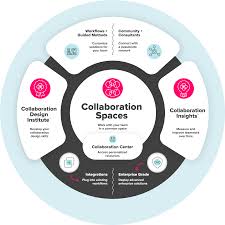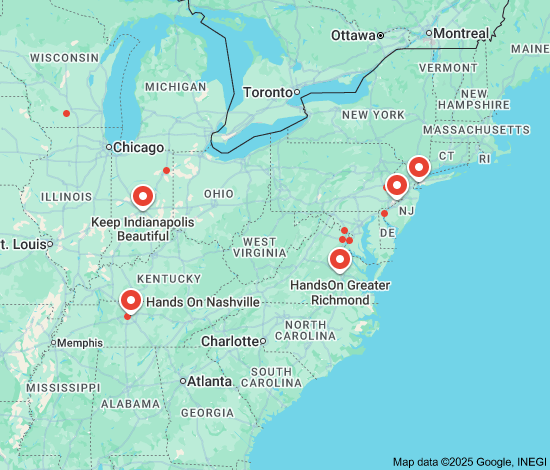The Persistent Issue of Gender Income Inequality
Gender income inequality continues to be a significant challenge in today’s society, with women consistently earning less than their male counterparts for the same work. Despite advancements in gender equality, disparities in pay based on gender remain a pressing issue that affects individuals, families, and the economy as a whole.
Studies have shown that on average, women earn approximately 82 cents for every dollar earned by men. This wage gap is even more pronounced for women of color and those in marginalized communities. Factors such as occupational segregation, discrimination, lack of access to high-paying jobs, and caregiving responsibilities contribute to this disparity.
Addressing gender income inequality requires a multifaceted approach that involves policy changes, workplace reforms, and societal shifts. Initiatives such as pay transparency laws, equal pay policies, promoting diversity in leadership positions, and providing support for working parents can help narrow the wage gap and create a more equitable society.
Furthermore, raising awareness about the issue of gender income inequality is crucial in fostering dialogue and driving change. By educating individuals about the importance of equal pay and advocating for fair treatment in the workplace, we can work towards closing the wage gap and creating a more inclusive society for all.
It is imperative that we continue to push for gender equality in all aspects of life, including income. By addressing the systemic barriers that perpetuate gender income inequality and advocating for policies that promote fairness and equity, we can strive towards a future where individuals are valued based on their contributions rather than their gender.
8 Essential Tips to Address Gender Income Inequality
- Advocate for equal pay for equal work regardless of gender.
- Support policies that promote transparency in salary and wage information.
- Encourage women to negotiate salaries and benefits confidently.
- Provide mentorship and training opportunities to help women advance in their careers.
- Promote diversity and inclusion in hiring practices to reduce gender biases.
- Support affordable childcare options to help working parents, especially mothers, stay in the workforce.
- Advocate for paid family leave and flexible work arrangements for both men and women.
- Raise awareness about the importance of closing the gender pay gap through education and discussions.
Advocate for equal pay for equal work regardless of gender.
Advocating for equal pay for equal work regardless of gender is a crucial step in addressing gender income inequality. By promoting the principle that individuals should be compensated based on their skills and contributions rather than their gender, we can work towards creating a more equitable and just society. Ensuring that all employees receive fair wages for the same job not only benefits individuals by providing financial security and recognition of their value but also promotes overall economic growth and stability. It is essential to advocate for policies and practices that uphold the principle of equal pay to combat discrimination and promote gender equality in the workplace.
Support policies that promote transparency in salary and wage information.
Supporting policies that promote transparency in salary and wage information is crucial in addressing gender income inequality. By advocating for greater transparency in pay practices, individuals can have access to vital information that allows them to compare their salaries with their counterparts and identify any disparities based on gender. This transparency not only helps in holding employers accountable for fair pay practices but also empowers employees to negotiate for equal compensation. Ultimately, promoting salary transparency can help create a more equitable workplace where individuals are paid based on their skills and contributions rather than their gender.
Encourage women to negotiate salaries and benefits confidently.
Encouraging women to negotiate salaries and benefits confidently is a crucial step in addressing gender income inequality. By empowering women to advocate for fair compensation, we can help bridge the wage gap and ensure that they are valued equitably for their skills and contributions. Providing resources, support, and training on negotiation techniques can boost women’s confidence in asserting their worth in the workplace, ultimately leading to more equitable compensation practices and a step towards achieving gender parity in pay.
Provide mentorship and training opportunities to help women advance in their careers.
Providing mentorship and training opportunities is a crucial strategy in addressing gender income inequality. By offering guidance, support, and skill development to women in the workforce, organizations can empower them to advance in their careers and bridge the wage gap. Mentorship programs help women navigate challenges, build confidence, and access opportunities for growth and promotion. Training initiatives can equip them with the necessary skills and knowledge to excel in their roles and negotiate for fair compensation. By investing in women’s professional development, businesses not only promote gender equality but also benefit from a more diverse, skilled, and inclusive workforce.
Promote diversity and inclusion in hiring practices to reduce gender biases.
Promoting diversity and inclusion in hiring practices is a crucial step towards reducing gender biases and addressing gender income inequality. By actively seeking out a diverse pool of candidates and creating an inclusive work environment, organizations can help mitigate the effects of unconscious biases that may contribute to unequal pay based on gender. Embracing diversity not only fosters a more equitable workplace but also brings a range of perspectives and experiences that can lead to innovation and success. By prioritizing diversity in hiring, companies can take a proactive stance in promoting fairness and equality for all employees, regardless of gender.
Support affordable childcare options to help working parents, especially mothers, stay in the workforce.
Supporting affordable childcare options is a crucial step in addressing gender income inequality, as it helps working parents, particularly mothers, to remain in the workforce. Access to affordable and high-quality childcare allows parents to pursue their careers without having to sacrifice their income or career advancement. By providing support for working parents, we can help close the wage gap and create a more equitable environment where individuals are not penalized for balancing work and caregiving responsibilities. Investing in childcare options benefits not only families but also the economy as a whole by enabling more women to participate fully in the workforce and contribute their skills and talents.
Advocate for paid family leave and flexible work arrangements for both men and women.
Advocating for paid family leave and flexible work arrangements for both men and women is crucial in addressing gender income inequality. By ensuring that individuals have the support they need to balance their work and caregiving responsibilities, we can create a more equitable workplace where all employees have the opportunity to succeed. Paid family leave allows parents to take time off to care for their families without sacrificing their income, while flexible work arrangements enable individuals to manage their work schedules in a way that suits their personal needs. These initiatives not only promote gender equality but also contribute to a more inclusive and supportive work environment for everyone.
Raise awareness about the importance of closing the gender pay gap through education and discussions.
Raising awareness about the significance of closing the gender pay gap is crucial in fostering a more equitable society. By engaging in educational initiatives and facilitating open discussions on gender income inequality, we can shed light on the disparities that exist and empower individuals to advocate for change. Through increased awareness, we can work towards creating a more inclusive and fair environment where equal pay for equal work is not just a goal, but a reality for all individuals, regardless of gender.




Leave a Reply